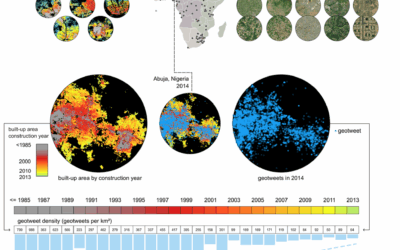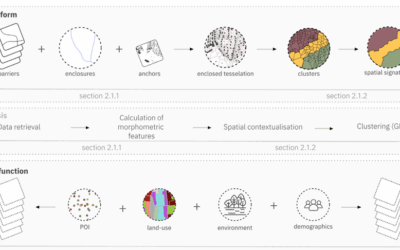New publication on the loss of greenness in growing urban areas exemplified by Chinese cities
Researchers from the Wuhan Botanical Garden as well as the Aerospace Information Research Institute of the Chinese Academy of Sciences, the German Remote Sensing Data Center (DFD) of the German Aerospace Center (DLR), the Institute of Local
Government Development of the Shantou University, and our Earth Observation Research Cluster of the Julius-Maximilians-University teamed up for a study on the loss of greenness in growing urban areas. The paper titled “Does urban growth mean the loss of greenness? A multi-temporal analysis for Chinese cities” was just published in the journal Science of the Total Environment by Sisi Yu, Tobias Leichtle, Zengxiang Zhang, Fang Liu, Xiao Wang, Xue Yan and Hannes Taubenböck. The full article is available here: https://www.sciencedirect.com/science/article/pii/S0048969723049987?via%3Dihub
Here is the Abstract of the article:
Urban growth is recognized as the conversion of vegetated surface to built-up surface. However, there is still no consensus about the urbanization-induced dynamic of vegetation greenness in view of existing literatures. In this study, we aimed to empirically investigate whether urban growth mean the loss of vegetation greenness. We selected 340 Chinese cities as the study areas, relied on consistent multi-temporal remotely sensed data and adopted linear regression analysis, annual growth area, Tail-Sen slope and Mann-Kendall models. Results show that although vegetation greening generally lagged behind urban growth in the monitoring period, a tendency of their consistent speeding up can be observed over time. By categorizing four forms and four trends of vegetation greenness dynamics related to urban growth, we revealed the diversity of Chinese cities. The former focused on the velocity of urban growth and vegetation greenness dynamics within newly urbanized area in three phases, i.e., 2003–2008, 2008–2013 and 2013–2018. The latter focused on the interannual trends of vegetation greenness dynamics among the previously existing and newly urbanized areas. The key finding is that, in over 85 % of the cities, we measured an increase of vegetation greenness along with urban growth. In addition, our detailed results allow quantifying the impact of urbanization in Chinese cities on vegetation protection and sustainable development.
The work is related to research studies of the group on urban green. See e.g. here: https://www.sciencedirect.com/science/article/pii/S0198971521000946 ; https://www.nature.com/articles/s41467-023-38596-1 ; https://www.sciencedirect.com/science/article/abs/pii/S0360132322011064 ; https://www.corp.at/archive/CORP2021_143.pdf








